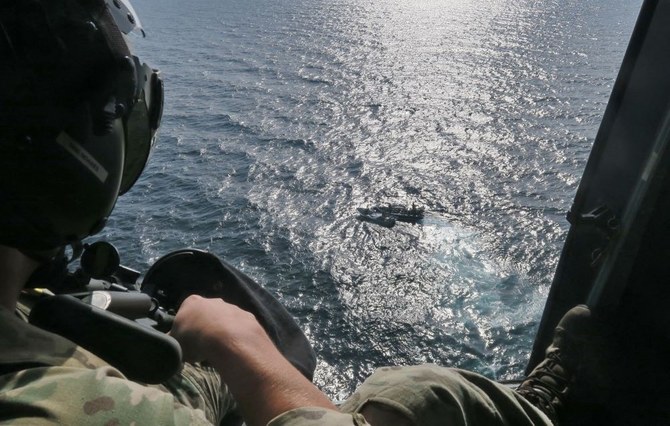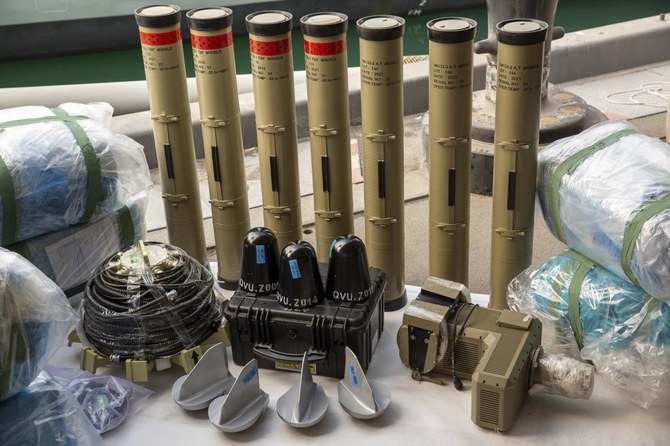AL-MUKALLA: Houthi efforts to smuggle Iranian weaponry into Yemen and their deployment of troops near major cities suggest the group is preparing for a fresh ground assault, military analysts and officials said on Thursday.
The warning came after a British warship captured a small consignment of arms, including ballistic missile components and a haul of Dehlavieh, the Iranian equivalent of the Russian-made 9M133 Kornet anti-tank weapon, during the search of a boat sailing from Iran on Feb. 23.
A helicopter from the Royal Navy frigate HMS Lancaster stopped the vessel before it could reenter Iranian territorial water, the British Defense Ministry said.
Yemeni authorities captured the same sort of anti-tank missile near the Shahen border crossing with Oman in 2022, according to the UN Panel of Experts on Yemen, which assessed the confiscated missiles in Yemen.
“The Houthi group’s concentration on this significant and destructive weaponry, as well as Iran’s ongoing shipments of Dehlavieh, indicate that the Houthis are preparing for a big land fight against the national army and the resistance,” Yahiya Abu Hatem, a military analyst, told Arab News.
In the last two months, the US, France and local Yemeni authorities have seized thousands of assault rifles, ammunition, anti-tank missiles and other weapons coming from Iran.
Yemen’s peace efforts have been stalled since October when the Houthis refused to renew a UN-brokered truce. The group threatened to launch attacks if the government refused its demands to share oil revenue and pay employees in areas under Houthi control.
Yemeni military officers believe the Houthis have smuggled weapons from Iran and amassed fighters outside key cities such as Marib and Taiz in preparation.
Abdul Basit Al-Baher, a Yemeni military officer in Taiz, told Arab News on Thursday that the Houthis’ continued supply of Iranian weapons and the repositioning of its forces around the city indicated that they would start a major military offensive.
“The Houthi militia is organizing its ranks, preparing its fighters and smuggling weapons in preparation for a massive and protracted struggle inside Yemen or against Saudi brothers,” Al-Baher said, adding that the group have used Dehlavieh missiles in Taiz and other disputed locations before.
Al-Baher said that the Houthis have used a 21mm rotating Vulcan cannon and thermal sniper rifles during the last two years. “The Houthi militia does not desire peace and uses truces to deceive. It is preparing for a fresh wave of combat by continuing to smuggle weapons,” he said.
Similarly, during the 40th session of the Arab Interior Ministers Council in Tunisia on Wednesday, Yemen’s Interior Minister Maj. Gen. Ibrahim Haydan called for intensified international efforts to stop the flow of weapons and drugs into Yemen, stating that his country’s coastguard, the Coalition to Restore Legitimacy in Yemen, and the international navies have intercepted numerous shipments of weapons and drugs.
The seizure by the Royal Navy comes after others by French and US forces, and as Western powers increase pressure on Iran as it continues to enrich uranium closer than ever to weapons-grade levels.

























